Whilst I don’t play tons of party games, I tend to favour those which rank as at least “mid-tier” in terms of the complexity. I’d much rather invest a bit more time and effort into a crunchier game, and I suppose in general that’s why I stray away from games designed for high player counts and lighthearted fun. Paranormal Detectives straddles the line between board game and party game in such a way that it can be used as either; usually to the immense satisfaction of those playing it.
If you are familiar with many of the classic deduction games that have been around for a long time, then you’re likely going to get the idea of Paranormal Detectives fairly quickly. In short, one player will take the role of a recently deceased person, and after reading a short passage of text, will set up a few basic aspects of a central board. The other players will then each take a screen matching their chosen character, as well as a deck of matching cards which will have more or less cards in it based on the player count.
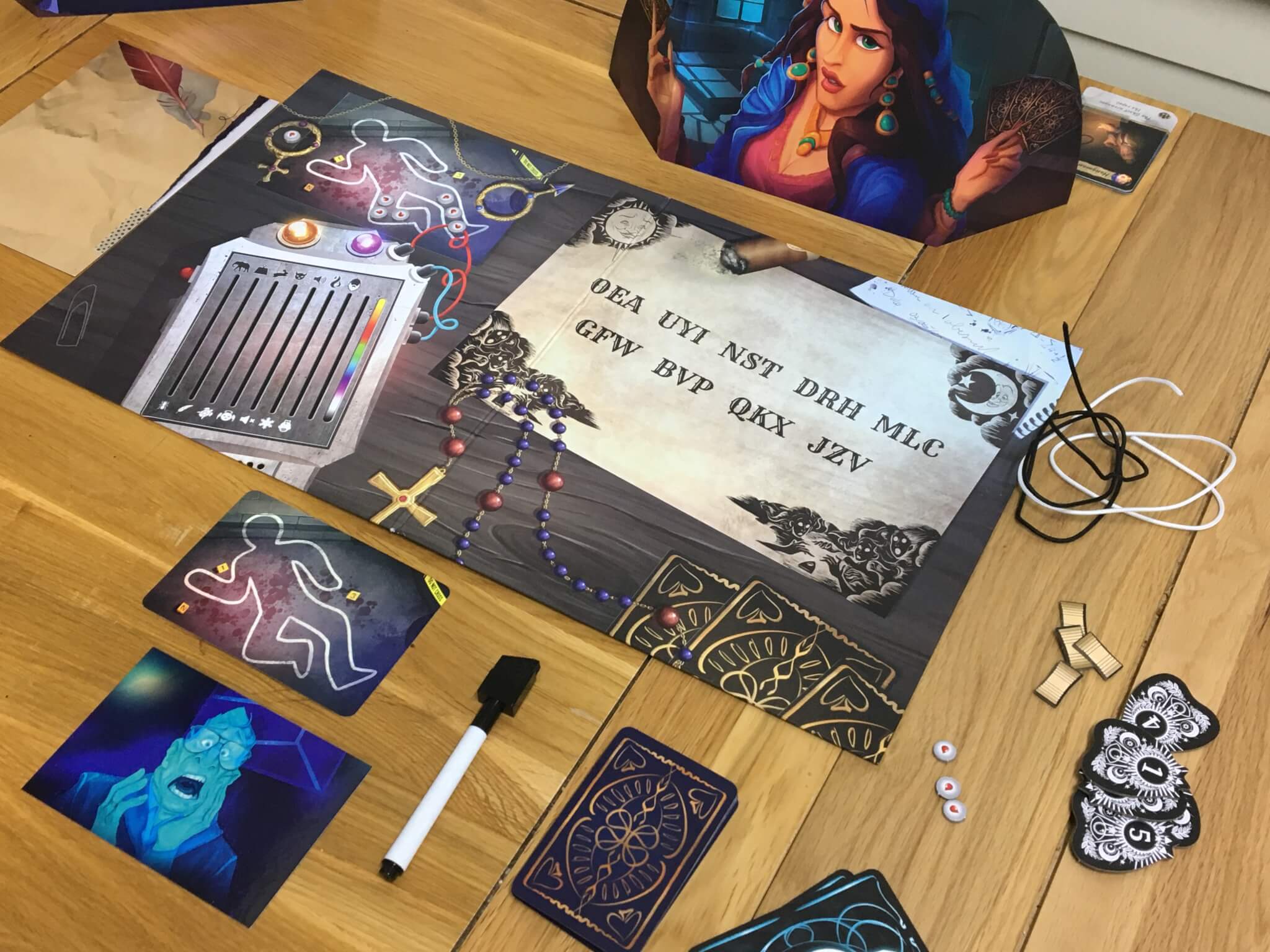
The objective for each of the detective players is to work out five key aspects relating to the death of the ghost player. This includes how the death occurred, what caused it, the location and so on. I should mention at this point that the deaths involved are certainly not always gruesome, or even murder, but there are some slightly graphic or adult themed ones, and each of these (from a deck of forty-odd) is marked with an explicit symbol to indicate that it should be excluded from games with children playing.
In order to win a game of Paranormal Detectives, one of the investigating players must correctly identify each of the five aspects of the death, at which point they win. The ghost player also wins should this happen, so the ghost will always want to cooperate with the players within the boundaries of the rules. I mention that because the ghost can’t provide clues directly, and will only be able to answer specific questions, and only in the manner prescribed on the card used by the active detective.
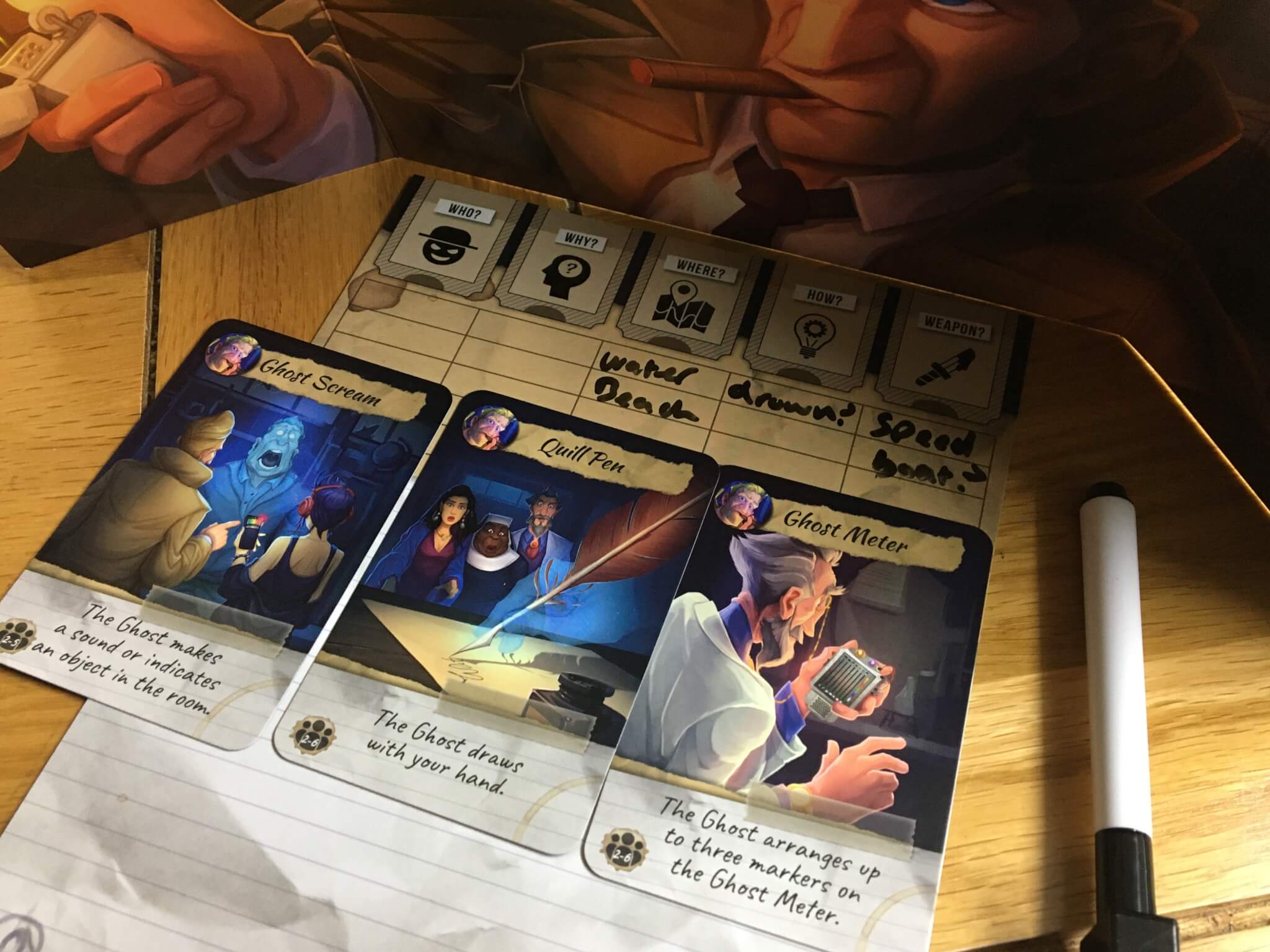
Detectives cannot ask questions that can only end in yes or no answers, and must therefore ask a question like “Where were you when you died?” Upon asking, the detective will also play their associated card, which might dictate that the ghost player will write the answer on the detectives back with their finger. They may also be asked to spell something out on the Talking Board, make shapes with some pieces of wire, or use three of the gauges shown on the board to indicate colours, temperatures, animals or other factors relevant to the answer.
The interesting ways in which the ghost must answer each question and the questions being asked must be considered carefully by the detectives, since not all methods of answering suit all questions. Personally I’d also say that the talking board card is by far the most powerful, since it essentially allows the ghost to spell out a word more or less exactly as the detectives would need to see it, however that’s useful for at most one clue each time it’s used.
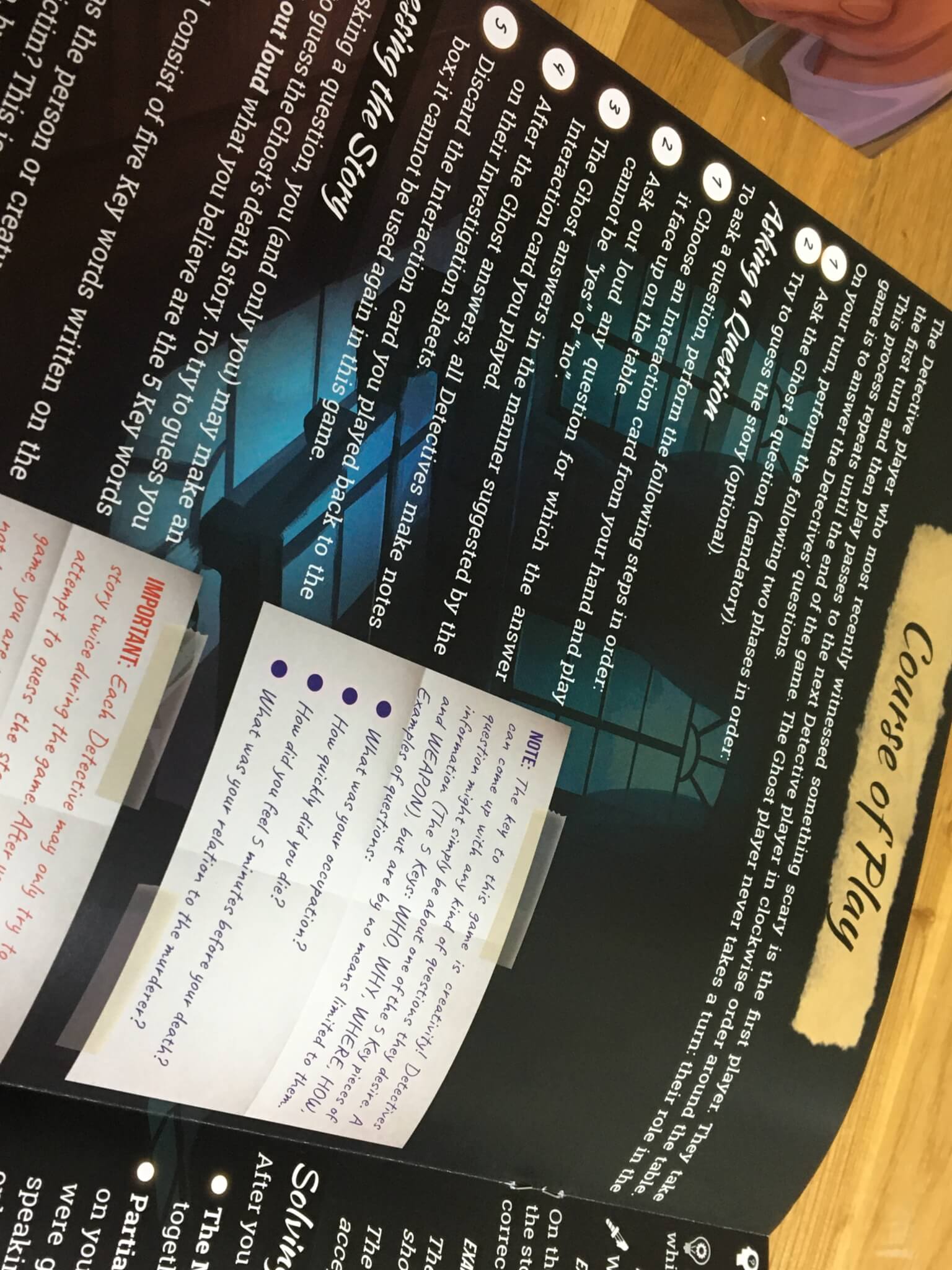
Twice per game, each detective can make a guess at solving the whole mystery. When they do so, the ghost player will use one of the included dry erase marker pens to write how many aspects of the mystery that the guessing detective has guessed correctly (assuming that it’s less than all give). If a detective makes a second incorrect guess, then they are eliminated from the game until the mystery is solved and the next game begins. The detectives will use a dry erase board of their own to keep track of the various answers provided to them and/or other players wherever they’ve been able to take advantage of what was passed on.
Each individual round of Paranormal Detectives will take at most about twenty to thirty minutes, depending on player count and experience. It’s fairly normal in my experience to play until all players have had a chance to be the ghost at least once, but in a three or four player game you could easily repeat the process twice.
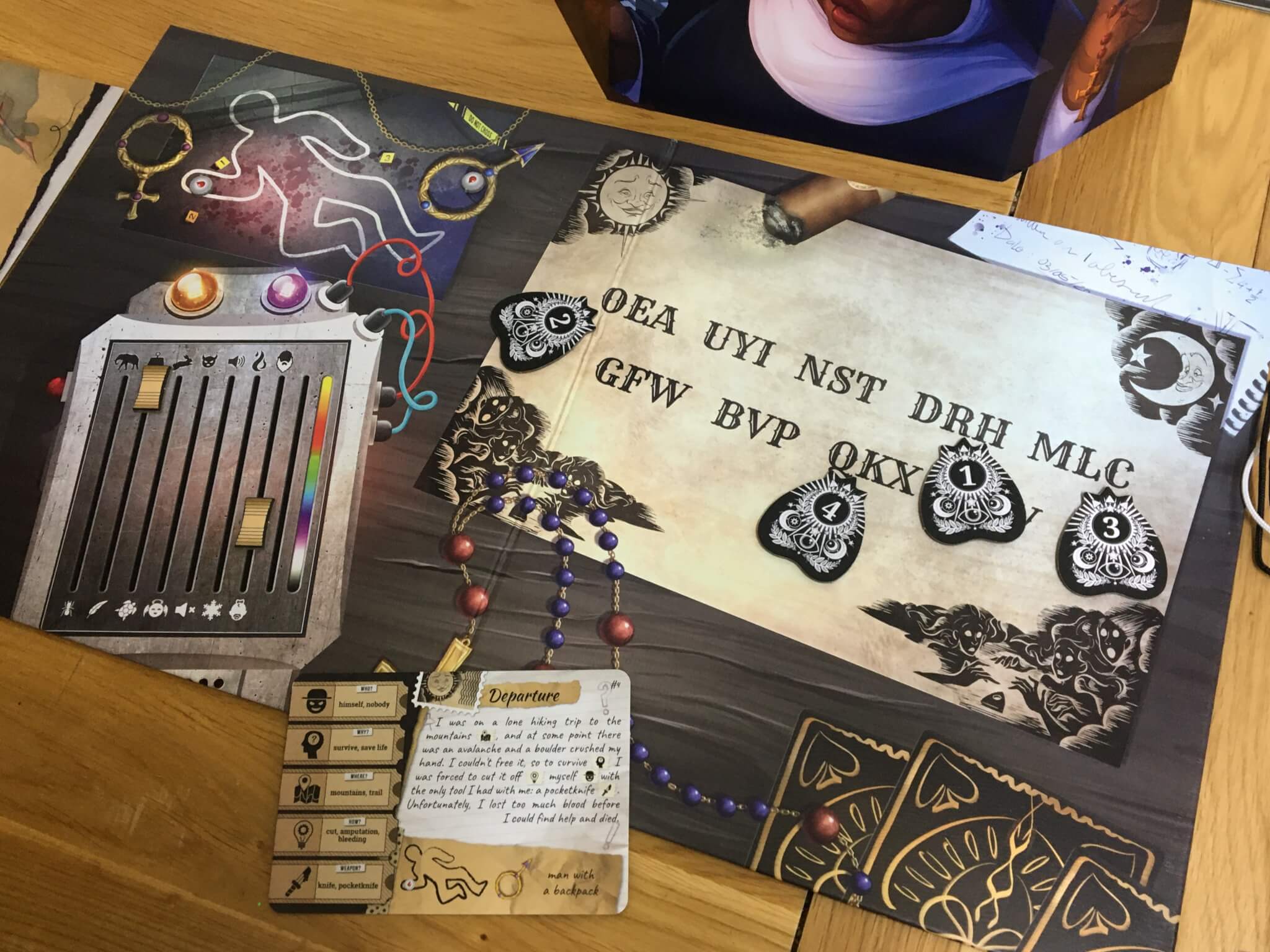
One small issue is that the more you play, the more you’ll begin to see the mystery cards recurring, and players who know the game well will begin to recognise which death is in play simply by seeing the wound tokens during the game setup — I have no doubt that Lucky Duck Games will release at least a few expansions for the game, since I have never known them not to support their products in that way over the longer term.
As you can imagine, Paranormal Detectives is quite a light, free flowing experience. There is more structure to it than most party games, but certainly less than there is for the average hobby board game, and that’s why I feel that it straddles the two quite nicely. There’s no doubt that you’ll likely end up with some players bending the rules slightly and/or perhaps not taking the game seriously, but that’s likely going to depend on your audience, and what they want from the game anyway.
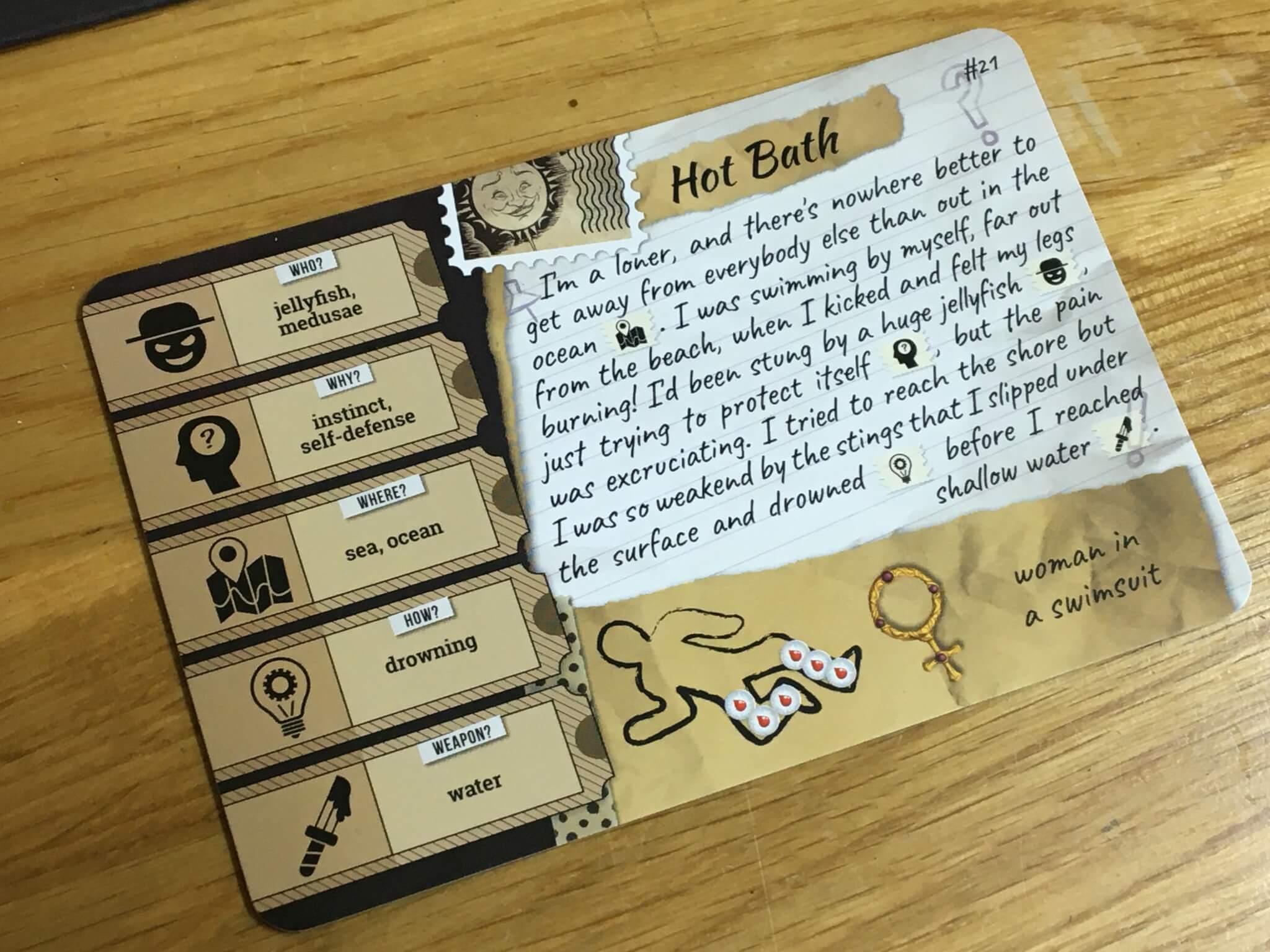
As someone who is rarely on the lookout for a specific party game, Paranormal Detectives scratches the itch for a lighter experience that can be enjoyed by a broad audience, yet still have some more serious gamey aspects to it. Whilst I do think there are softer elements that lean towards a party game, there’s also a lot more to take in and think about than there are in smaller games that are really meant for mass audiences.
With all of this said, Paranormal Detectives is just a lot of fun. It’s often silly, occasionally a bit frustrating or confusing if a particular ghost player falls flat when it comes to getting into the spirit of things, but such problems rarely occur. Overall, this is a game that fills a niche that you may not have, but it’s also a very unique and enjoyable experience that is likely to appeal to just about anyone.
You can purchase Paranormal Detectives on Amazon.
